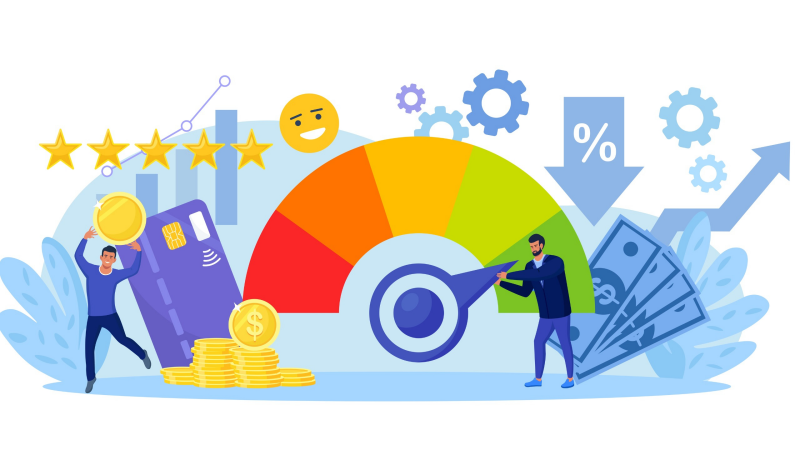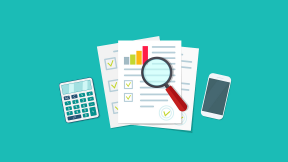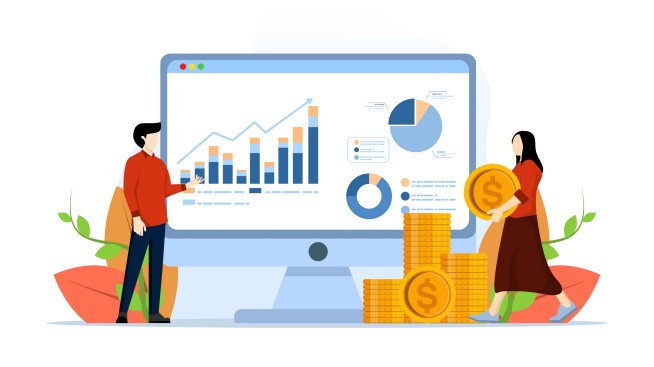The three types of credit

Do you have a credit card, but don't know what kind of credit it is? Maybe you didn't even know there could be different types of credit. We often hear the word "credit" as an all-encompassing term, without realizing that there may be nuances to it. Understanding its variations can be helpful when it comes to finding ways to improve your credit score and building strong credit.
In this article, you will learn about:
- Open-end credit
- Open credit
- Closed-end credit
- How these types of credit can affect your score
Open-end credit
The first type is open-end credit, which is the idea that your credit line is "open" to you (also known as "revolving credit"). That means you can withdraw funds repeatedly up until you've reached your credit limit. Think of it as a "revolving door" of funds. Each time you take out money, then pay it back, the funds become available to you again.
One example of open-end credit is credit cards—depending on your card's terms and conditions and the credit limit set, you can make transactions using your card. You will then need to pay off the balance at the end of the billing cycle, or at the very least, the minimum payment by its due date.
Examples of open-end credit include:
- Credit cards
- Home equity line of credit (HELOC)
Open credit
Not to be confused with open-end credit, open credit is where a full payment is required at each payment period. Essentially, you are paying for resources at a later date. For example, utility bills—you make an agreement that you will pay for your electricity, water, heat etc., by a certain date after you've used these resources. Examples include bills for the following:
- Utility bills
- Internet bills
- Cell phone bills
Closed-end credit
Lastly, there's closed-end credit. Think of this type of credit as your typical loan. They can either be secured (with collateral, such as a car loan) or unsecured (such as funds for college tuition). The credit doesn't revolve like it does with credit cards. Rather, you receive all the funds you need at once to cover the cost of a purchase or expense and pay it back over time—in set increments—in addition to interest rates.
With closed-end credit, there is fixed payment schedule for a certain duration. These types of loans can be paid back in installments—that's why closed-end credit can be referred to as "installment loans."
Examples include:
- Car loans
- Mortgages
- Student loans
How they affect your credit score
Each of these types of credit can affect your credit score depending on your financial choices and behaviors. Let's explore how this happens for each below:
Open-end credit
If you have a credit card and use it responsibly—paying your bills on time and in full—you can see your credit score improve over time. Due to the fact that payment history is a significant factor affecting your score, showcasing your ability to pay your credit card bills can have a positive impact on your credit score. On the other hand, if you miss payments, you can face fees, a drop in your score and derogatory marks on your credit report. Additionally, when you first take out a credit card, you may see a temporary dip in your credit score due to your lender running a hard credit check.
Open credit
Because open credit doesn't get reported to credit bureaus, your payment history towards things like utility bills won't necessarily affect your score. However, if you miss your payments enough to have a collections agency try to collect the debt from you, you could diminish your credit score and have derogatory marks appear on your credit report. These marks could hinder you from taking out other lines of credit in the future because they show potential lenders that you could be a person with low creditworthiness who poses a risk for default.
Closed-end credit
Similar to open-end credit, making regular, on-time payments towards your closed-end credit accounts can reflect positively in your credit score. While your score may drop temporarily when you take out a loan (due to your lender running a hard inquiry), you can see your score improve over time. This is due to both payment history and adding more and different kinds of credit to your portfolio. Diversifying your credit mix can help improve your score over time as well.
How to check each type of credit
It's important to check your credit and monitor your credit score so that you can stay on top of your bills and make adjustments as needed. When it comes to your credit cards, you'll want to review your credit report and billing statements, which can come through the mail or electronically.
You can also access your credit score by enrolling in Chase Credit Journey®. With this free online tool, you'll receive a free credit score and a credit report provided by Experian™ as well as resources to help you better understand, track and improve your credit score over time. You can also enroll in credit and identity monitoring services to help keep track of your credit score.
When it comes to closed-end and open credit, be sure to check your online or mailed statements indicating your most recent bills and payments. This can help you stay accountable and more accurately budget for these payments each month.
In conclusion
The term "credit" is a broad term that encompasses more than just credit cards. It can refer to different lines of credit—from HELOCs to installment loans and more. How you manage your credit is what ultimately affects your credit score in the long run. If you maintain healthy financial habits—such as making your payments on time and in full—you may be able to benefit from taking out all these different types of credit.



